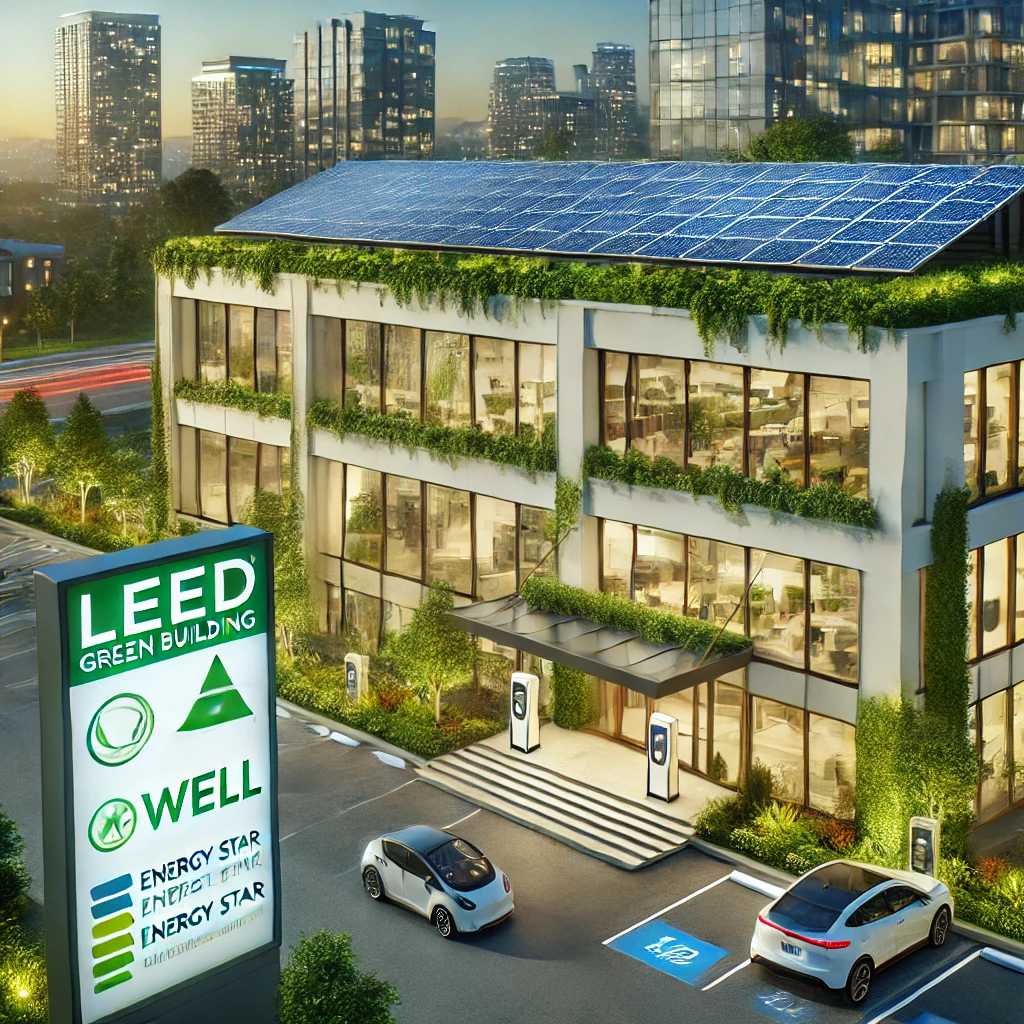Green building certifications have emerged as a vital benchmark in the construction and real estate…

Highest Hourly Rate for Electricians by State
How much do electricians earn per hour?
Electricians are highly skilled professionals crucial in constructing and maintaining buildings and infrastructure. Their work involves installing and repairing electrical systems, wiring, and equipment, among other things. Electricians can work in various residential, commercial, and industrial settings. The pay for electricians can vary significantly depending on their location, experience, and qualifications. This article will provide an overview of the highest hourly rates for electricians in the USA and a breakdown of average, low, and high rates. We will also explore why electricians earn more in certain states and whether they are better off financially in those locations considering the cost of living.
Top 20 states with the highest hourly rates for electricians
According to the latest data from the Bureau of Labor Statistics (BLS), the top 20 states with the highest hourly rates for electricians are:
- Alaska: $43.63 (average) / $29.55 (low) / $58.05 (high)
- Illinois: $38.34 / $23.63 / $54.96
- Hawaii: $37.80 / $27.66 / $50.79
- New York: $36.54 / $23.56 / $53.09
- Massachusetts: $36.42 / $25.04 / $50.06
- Oregon: $35.47 / $22.44 / $50.34
- Minnesota: $35.20 / $24.19 / $47.85
- California: $34.79 / $23.28 / $51.90
- New Jersey: $34.66 / $22.92 / $49.88
- Washington: $34.34 / $24.21 / $48.80
- Rhode Island: $34.15 / $24.69 / $47.53
- Colorado: $33.96 / $22.91 / $47.25
- Connecticut: $33.94 / $23.29 / $47.53
- Maryland: $33.46 / $22.51 / $47.53
- Iowa: $32.93 / $21.90 / $47.53
- Wisconsin: $32.68 / $22.39 / $47.53
- Delaware: $32.62 / $23.17 / $43.85
- Nevada: $32.21 / $22.13 / $47.53
- Arizona: $31.88 / $21.75 / $44.87
- Virginia: $31.81 / $20.61 / $44.16
Why do electricians earn more in certain states?
The reasons why electricians earn more in certain states are varied and complex, but several factors can contribute to higher wages. Firstly, some states have higher living costs, which can increase wages to compensate for the increased expenses. In addition, some states have a higher demand for electricians due to a growing population, expanding infrastructure, or a thriving economy. These factors can lead to a shortage of skilled workers, driving up wages as employers compete for talent.
Another factor that can contribute to higher wages for electricians is the level of training and qualifications required for the job. Some states have more stringent licensing and certification requirements for electricians, which can result in higher pay for those who meet these standards. Furthermore, electricians who specialize in a particular area of the industry, such as solar or industrial electrical work, may command higher wages due to their specialized knowledge and
experience required for those fields. Electricians who have completed an apprenticeship program or have several years of on-the-job experience may also earn higher wages than those just starting in the area.
In some cases, electricians may also negotiate their rates directly with clients or contractors based on their skills, experience, and reputation in the industry. This can lead to higher pay for electricians with a strong network and reputation in their field.
Why are the top 5 states for hourly electrician rates at the top?
The top 5 states for electrician hourly rates – Alaska, Illinois, Hawaii, New York, and Massachusetts – have several factors in common that contribute to their high wages for electricians.
Firstly, these states all have a higher cost of living than others, which can increase wages to compensate for the increased expenses. In addition, they have a high demand for electricians due to a growing population, expanding infrastructure, and a thriving economy. These factors can lead to a shortage of skilled workers, driving up wages as employers compete for talent.
Secondly, these states have more stringent licensing and certification requirements for electricians, which can result in higher pay for those who meet these standards. Electricians in these states are often required to complete more rigorous training and certification programs, which can lead to a higher level of skill and expertise in the field.
Finally, electricians in these states may also be more likely to specialize in a particular industry area, such as solar or industrial electrical work. Specialized knowledge and expertise can command higher wages in the industry, leading to higher hourly rates for electricians in these states.
Are you better off financially being in one of the top 5 states?
While electricians in the top 5 states for hourly rates may earn more on average, it’s important to consider the cost of living in those locations. Higher wages may be offset by higher expenses for housing, food, and other necessities. It’s vital for electricians to carefully consider their financial situation and the cost of living in a particular location before making a decision to move or accept a job.
In conclusion, the hourly rates for electricians can vary significantly depending on various factors, including location, experience, and qualifications. By understanding the factors contributing to higher wages for electricians, professionals in the field can make informed decisions about their careers and negotiate fair compensation for their skills and expertise.



